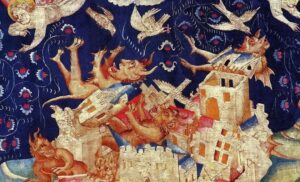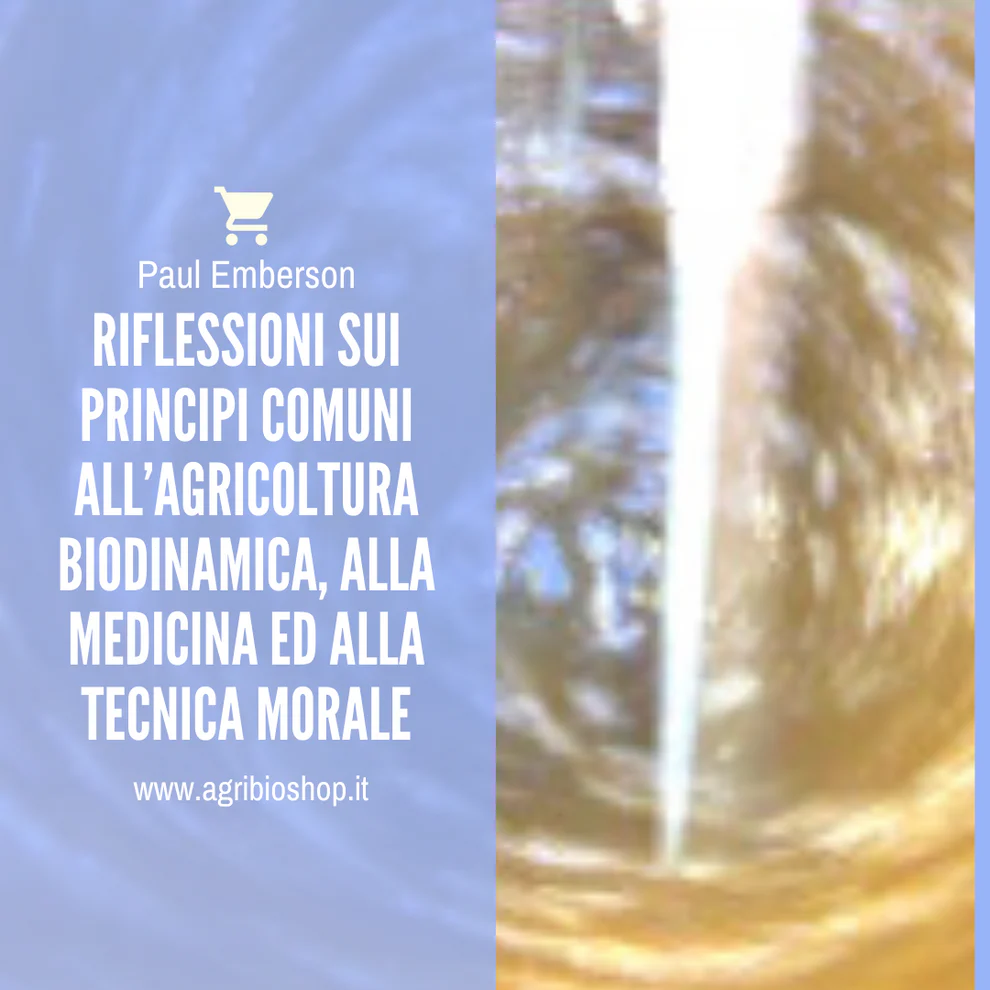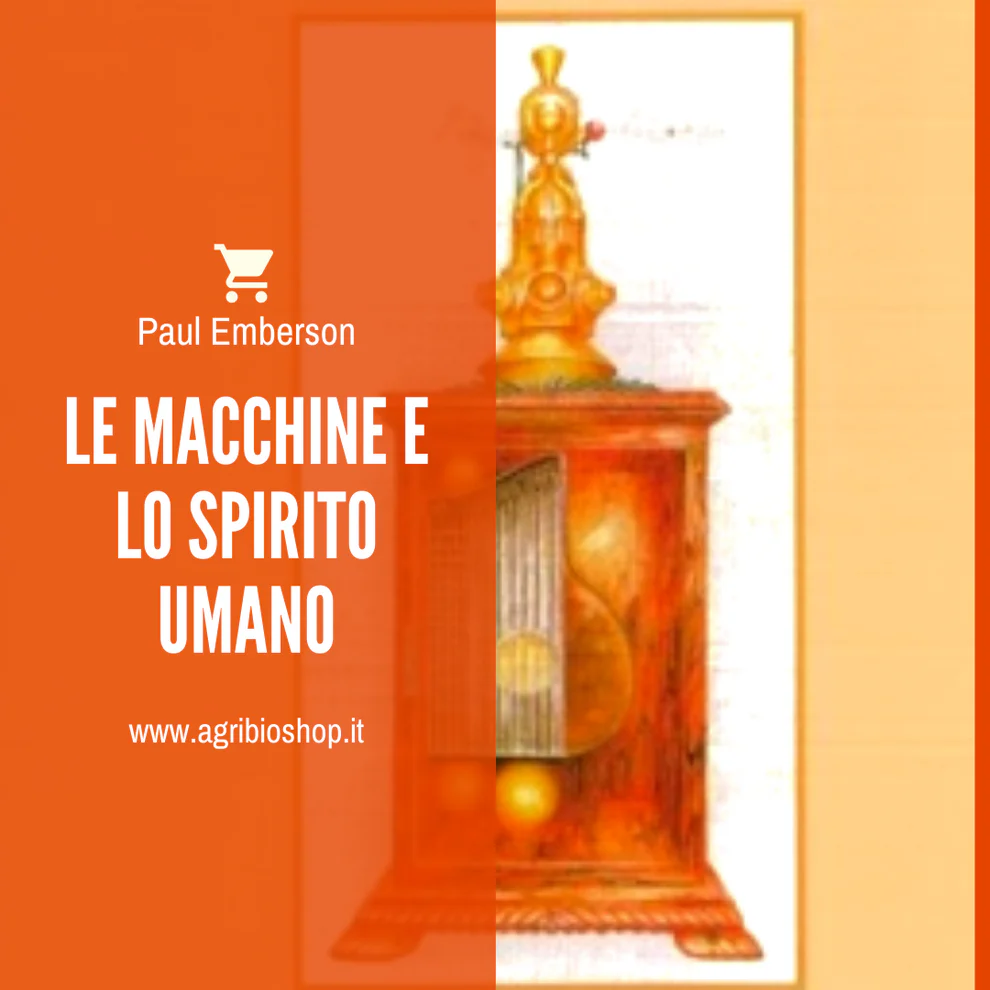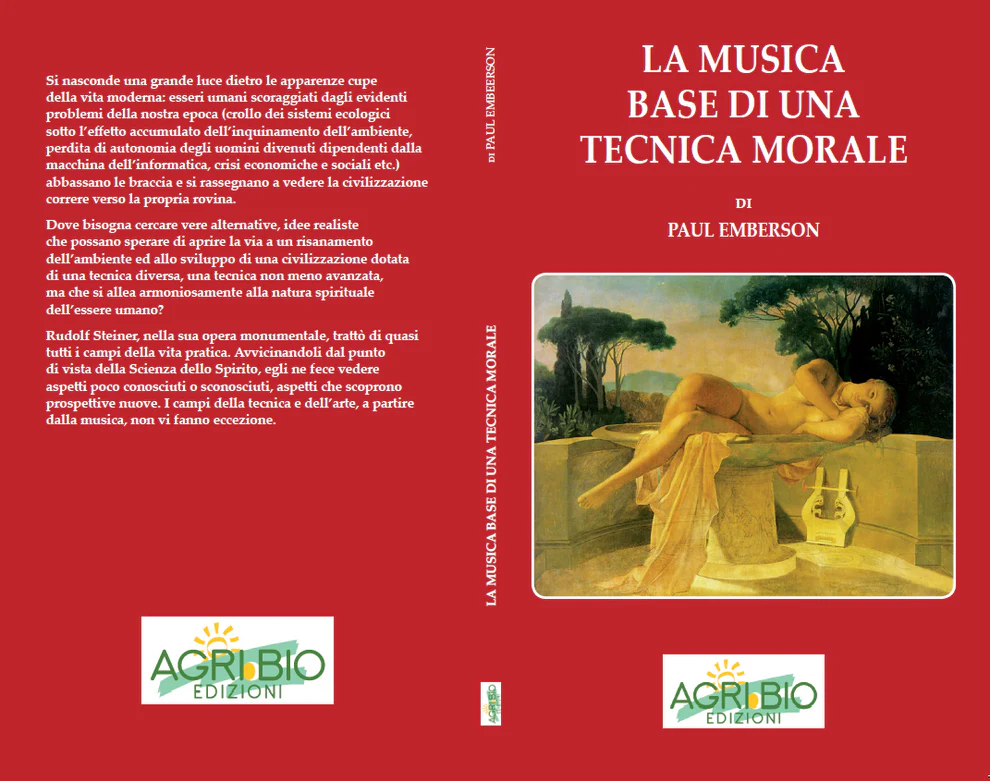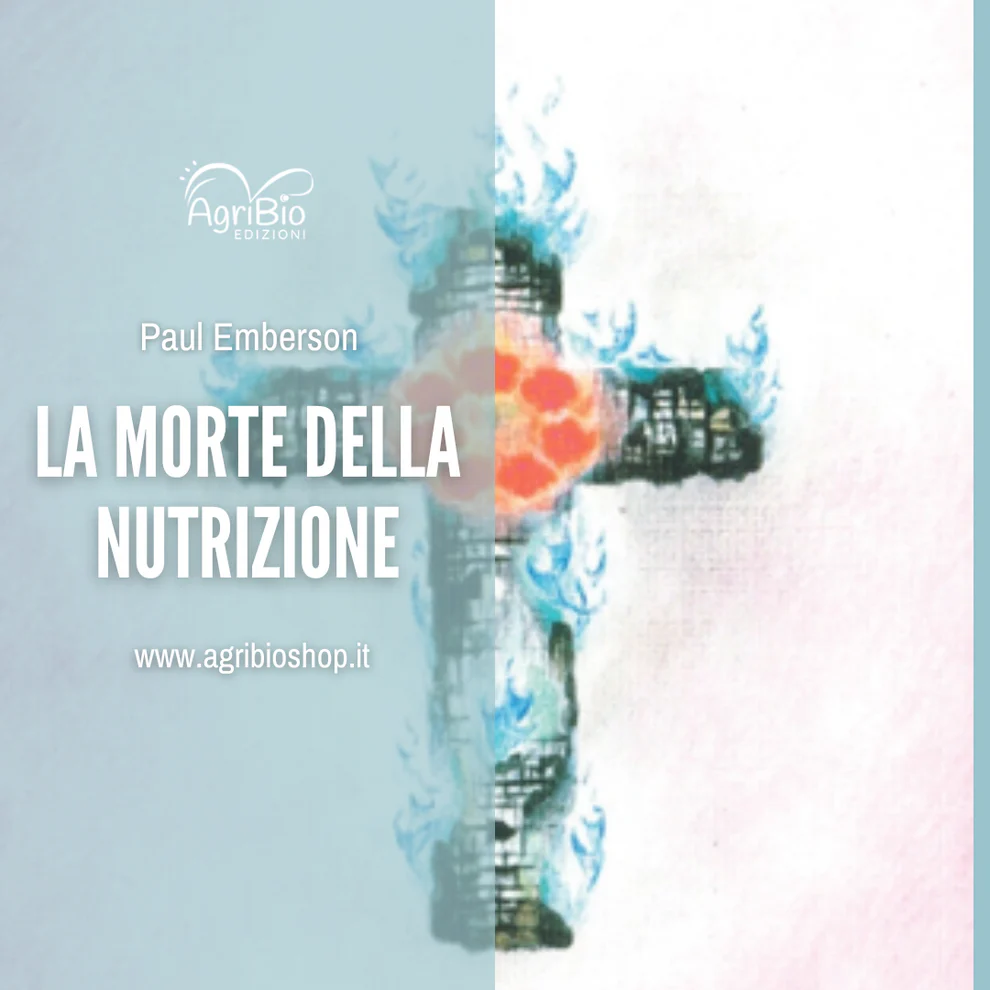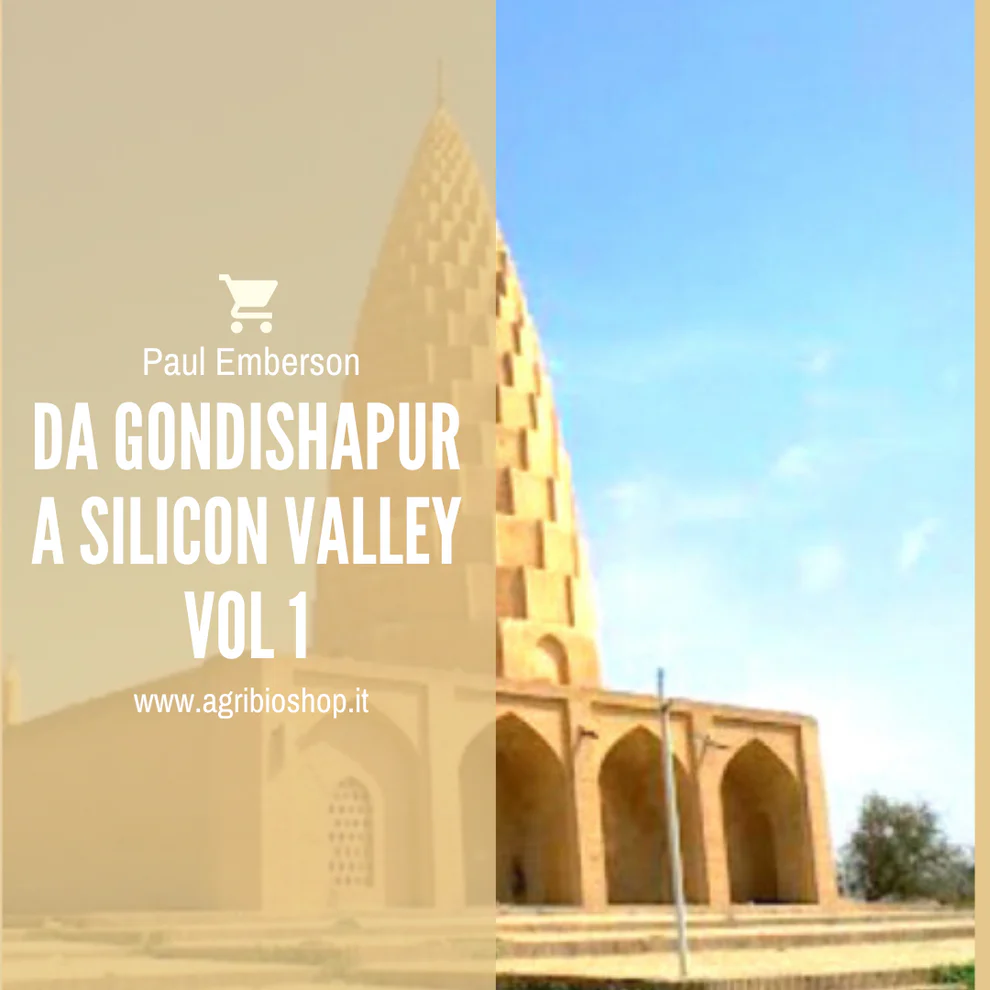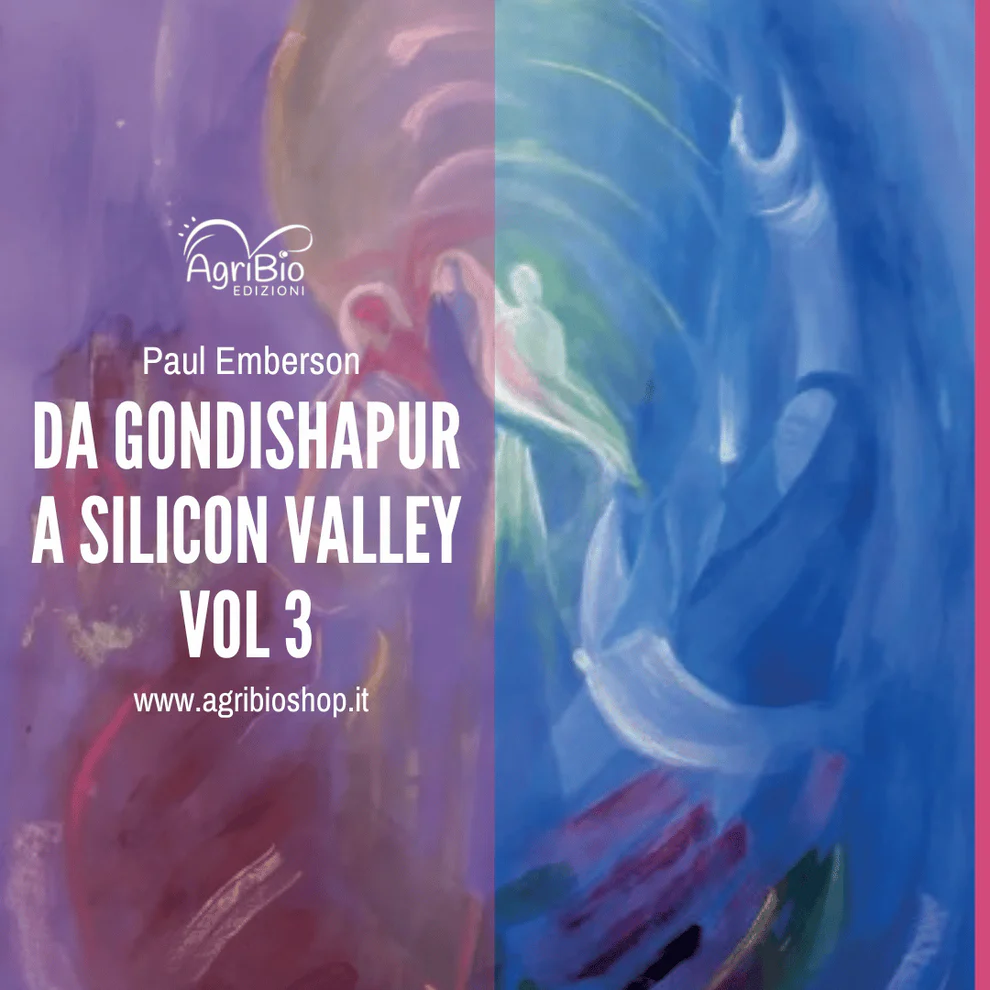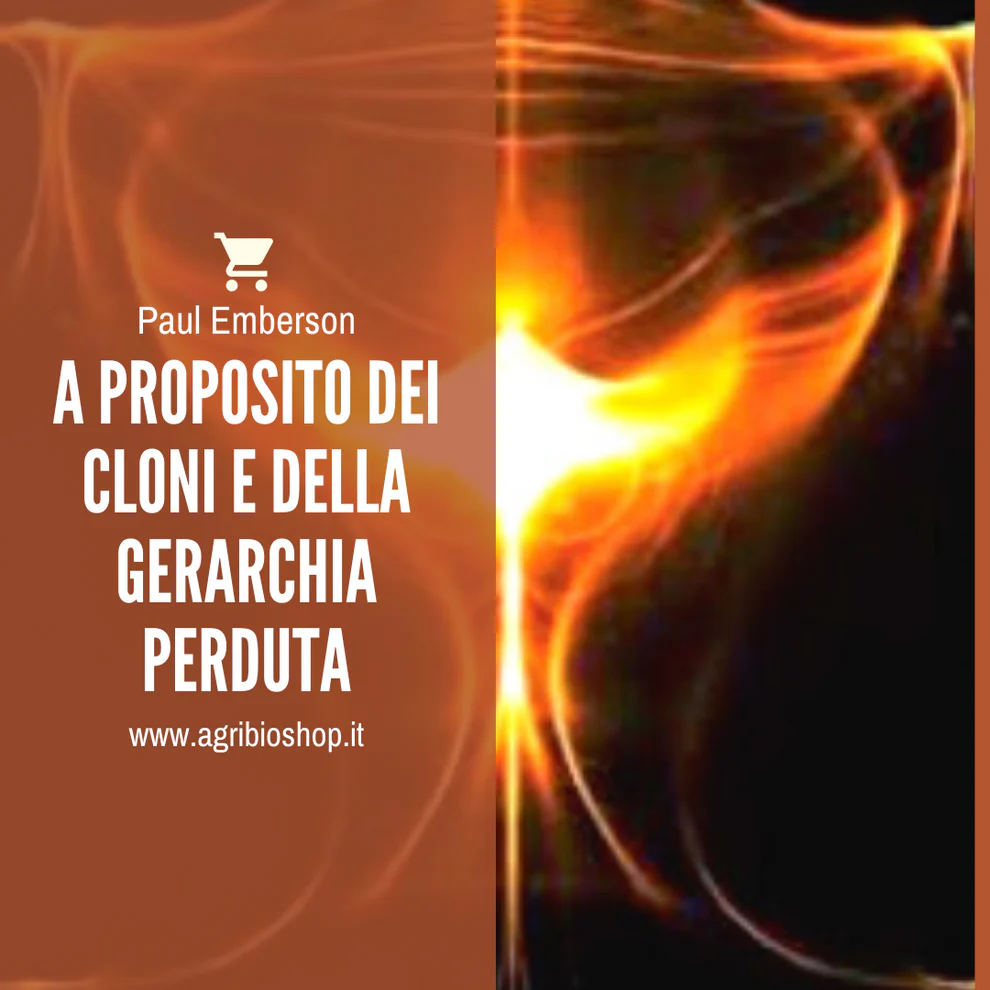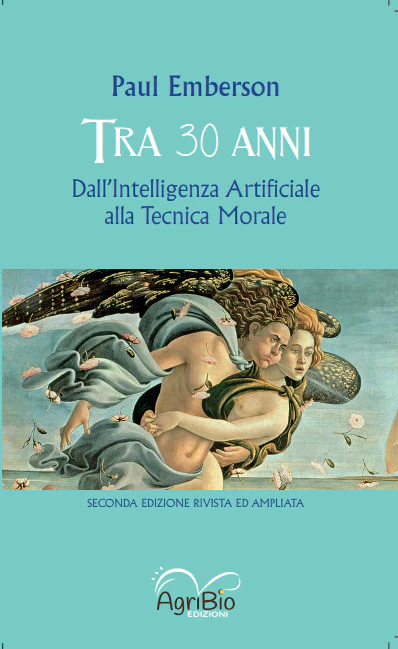By Piero Cammerinesi
In pure rays of light
Gleams the Godhood of the world
In pure love towards all that is
Radiates the godliness of my soul.
I rest in the Godhood of the world.
I shall find myself
Within the Godhood of the world.
Rudolf Steiner
A PERSONAL REMEMBRANCE
Every now and then, the past comes back to speak to us, bringing back to memory facts or people we think we have forgotten, yet are actually deeply imprinted in our souls; and often the tiniest reminder is enough to bring back to consciousness.
One of these facts goes back to when I first met Massimo Scaligero which took place, in April, 1971. It is an episode that I have never forgotten, yet, in recent years, it has reappeared into my consciousness in a particularly vivid way.
At that time when I was desperately looking for a Master, a friend told me about Massimo Scaligero. He began by telling me about two schoolmates, that while looking for an attic room to rent in Monteverde (a neighborhood in Rome), they had come across a strange character who beckoned them to go upstairs so he could give them a book; then talked about things that were so mysterious to them that they were almost frightened.
The story struck me so much that I asked them for this person’s phone number in order to make an appointment with him.
Of my meeting with Massimo Scaligero, I have already spoken extensively both in the link to the interview above, and, in the film, OLTRE: A Tribute to Massimo Scaligero. Therefore, I will not repeat myself here. What I am interested in recalling, however, is that when I told him about the friends who had led me indirectly to him, he told me bluntly,
“They will never return; they only came because they were supposed to bring you.”
And then added with a very serious expression,
“Remember, however, that you should always have a deep feeling of gratitude towards them because they led you to the Way.”
This statement struck me very much and remained deeply imprinted in my consciousness. When contemplating gratitude, I thought how often we are only really capable of it, with those people who directly and consciously do us good or provide us with tangible benefits. It is difficult to find gratitude for those who “accidentally” produce positive effects for us.
Since then, as they say, a lot of water has passed under the bridge. Yet, recently, I have decided (prompted by a request to speak at a conference) to look into this matter of gratitude a bit further.
GRATITUDE TO PEOPLE AND EVENTS
I began to look up what Rudolf Steiner and Massimo Scaligero wrote about this very much, unvisited sentiment, particular in the current day, and I must say that I have made some very unexpected discoveries.
Rudolf Steiner addresses the topic of gratitude in a variety of books and cycles. To begin, let us examine its salient points starting with one of his seminal works, How to Know Higher Worlds.
One must realise that one’s existence is, as it were, a gift from the entire universe. Only consider all that is needed in order that each of us may receive and maintain his existence! Consider what we owe to Nature and to other men! Those who desire an occult training must be inclined toward thoughts like these, for he who cannot enter into such thoughts will be incapable of developing within himself that all-inclusive love which it is necessary to possess before one can attain to higher knowledge. That which we do not love cannot manifest itself to us. And every manifestation must fill us with gratitude, as we ourselves are the richer for it. (Rudolf Steiner, How to Know Higher Worlds, GA 10).
In order for us to see the special moment come when the esoteric novice begins to see the great eternal truths, it is necessary to let live within us—embody us—as well as be a practice, for a period of time, these truths while being grateful to those who have communicated them to us.
suddenly the world around him lights up in colors never seen before. Something becomes audible that he had never heard before. The world will radiate in a new light. New sounds and words will become audible. This new light and radiance ray toward him from the soul realm and the new sounds he hears come to him from the spirit realm. It is characteristic of the soul world that one “sees” it. It is equally characteristic of the spirit world that one “hears” it. (Rudolf Steiner, The Inner Development of Man, GA 53).
THE WASHING OF THE FEET
Continuing our search for recurrences of gratitude in Rudolf Steiner’s work, one comes across, at one point, a deeply significant symbolic act that belongs to Christian esotericism—the washing of the feet.
Herein lies the need to understand that all that we are, we owe, not to ourselves, but to others and to our surroundings. For this, we must kneel before those who have allowed us to become what we are.
Christ Jesus suggested this when at the washing of the feet he bent down to his disciples and washed their feet. Someone who is at the first stage of Christian initiation must fill his heart and mind with such a feeling of gratitude to all that is below him. Two symptoms will indicate what he has achieved. He will have an astral vision where he sees himself in the washing of the feet situation. This happens to everyone who goes through this in the right way. (Rudolf Steiner, The Christian Mystery, GA 97).
Moreover:
The washing of the feet is the first of the seven levels of Christian initiation, which are: foot washing, slap and scourging, crowning with thorns, crucifixion, death, burial and resurrection.
This is an inner path indicated by outward symbols, as the disciple who looks around the world comes to understand that he could not have reached the level he is at if everything below him had not developed accordingly.
When a person develops such feelings in his soul, then a state of mind is created such that he not only has reason to look up with gratitude at what is above him, but also to look down with gratitude at what is below him (Rudolf Steiner, Macrocosm and Microcosm, GA 119).
If the novice is able to deeply live the experience of the washing of the feet, he can come to experience the pains of the Crucifixion (as happened to Judith von Halle who received the stigmata as a result of this very profound experience.)
When, however, we begin to feel that our feet are as though washed with water, our body as if covered with wounds, then we have succeeded in driving these feelings so deeply into our nature that they have penetrated as far as the physical body. They do indeed penetrate the physical body, and then the stigmata, the marks of the bleeding wounds of Christ Jesus, may appear. We drive the feelings inwards into the physical body and know that they develop their strength in the physical body itself. We consciously feel ourselves more in the grip of our whole being than if the impressions were merely in the astral body and etheric body. The essential thing is that through a process of mystical feeling we work right into our physical body; and when we do this we are doing nothing less than making ourselves ready in our physical body to receive the Phantom that went forth from the grave on Golgotha. (Rudolf Steiner, From Jesus to Christ, GA 131).
THE JUGENDKREIS
Furthermore, I have made in-depth research regarding the phenomenon of the Esoteric Youth Circle or the Jugendkreis. (Refer to two different articles found here and here.)
Rudolf Steiner adamantly expressed, especially referring to the Jugendkreis, that with every achievement one gains, it is possible only through the efforts of all.
These were the words Steiner spoke on October 13th, 1922, in front of the 12 founding members of the Jugendkreis:
To unite together through a mutual promise in striving for a common spiritual purpose, and in doing so to nevertheless leave each one completely free in their actions and their judgments – a community founded upon such precepts is something quite new in the development of humanity and something which is needed today as a matter of utmost necessity. For someone who reaches certain results through esoteric means, there is always the danger of megalomania. A community like yours can be a protection against this. Because in it you are all striving together to cross the threshold of the spiritual world. And then everyone has to realize that they owe their personal achievements to the efforts of all the others (Ernst Lehrs Report).
GRATITUDE AND SHAME IN THE FACE OF WORDS AND THOUGHTS
In a lecture devoted to the occult development of man (GA145), Rudolf Steiner further elaborates on the subject of gratitude through indicating what feelings one experiences in this context of pursuing the path of inner growth. He states, in fact, that while the ordinary man, when he has spoken words, soon forgets them. Yet, to the novice of esotericism, a definite feeling begins to manifest itself subsequently regarding what he has said. It is a sense of inner ‘shame’ when he has said something morally or intellectually incorrect, and a kind of gratitude when he has succeeded in saying something right and true.
He defines this inner process and the risks involved as well:
And if he feels—and for this, too, he acquires a delicate sensitiveness—that something like an inner self-satisfaction, a self-complaisance with himself arises when he has said something that is right, that is a sign that he still possesses too much vanity, which is no good in his development. He learns to distinguish between the feeling of satisfaction which follows when he has said something with which he can agree, and the self-complaisance which is worthless. He should try not to allow this latter feeling to arise, but only to develop the feeling of shame when he has said anything untrue or non-moral, and when he has succeeded in saying something suitable to the occasion, to develop a feeling of gratitude for the wisdom he now has part in, and to which he does not lay claim as his own, but receives as a gift from the universe (Rudolf Steiner, The Effect of Occult Development Upon the Self and the Sheaths of Man, GA145).
A further step on this path is taken when we begin to experience these feelings of gratitude or shame not only at what we have said but also at what we have thought. Our thoughts become a kind of litmus test of the degree of inner evolution achieved,
Regarding a thought, of which he may say: ‘I have thought that and it is in keeping with the Wisdom’—regarding this thought he develops a feeling of gratitude towards the Wisdom. A thought which arises as a wrong, ugly, non-moral thought leads to a certain inner feeling of shame, and the student feels: ‘Can I really still be like this? (Ibid.).
Moreover, amazingly, is the relationship Steiner introduces between “gratitude/shame” and “heat/cold” in the context of the history of cosmic evolution:
On ancient Saturn—as you know—heat was the densest physical condition, as it were, the only physical condition which had been reached by the middle of the Saturn period. And you may read in my book, An Outline Of Occult Science, the Saturn activities in the physical were currents of heat and cold. We may also speak of these currents of heat and cold from the psychic, soul-aspect, and say: Heat flowed in streams, but this heat was the flowing gratitude of the Spirits of Personality; or this flowing heat which moved in a different direction was the flowing feeling of shame of the Spirits of Personality. (Ibid.).
GRATITUDE FROM THE SPIRITUAL WORLD
But it is not only man who experiences gratitude toward the spiritual world; Steiner tells us that the spiritual world also experiences gratitude toward man:
But those who contemplate the developing postmortem relationship of the etheric body to what I have called the heavens come to a different view of the matter. They would have to say that the content a person has created for himself as the fruit of his thinking, feeling, and willing, of his work, of his whole existence, of everything that has happened to him and that has, during his life on earth, been incorporated into his etheric body is something for which the heavens are full of gratitude when they receive it. A cloud of gratitude sweeps over those who direct their clairvoyant gaze upon the abandoned etheric body of a deceased human being. (Rudolf Steiner, Chance, Necessity and Providence GA163).
GRATITUDE IN THE DECEASED
A very interesting chapter in this investigation of gratitude is the way this feeling is experienced by the deceased:
That their action in this respect was justified, the ancient priests of the Mysteries were able to perceive from one definite fact, namely this:—When they were initiated in holy ancient Mysteries and were thus enabled to communicate with the dead, then they discovered the great thankfulness of the human being after death, for such measures as they had taken. The dead proved thankful, above all, for the fact that before their passage through the Gate of Death they had been saved from contact with these forces (Rudolf Steiner, On the Mysteries of Ancient and Modern Times, GA 180).
GRATITUDE IN THE SUBCONSCIOUS
Aside from the need to develop the feeling of gratitude in full consciousness, if we delve deeper into our soul, we soon discover that a feeling of gratitude arises in our subconscious mind toward our impressions as well, regardless of how we experience them on a conscious level.
When in life we perceive something—and from early morning, from waking to falling asleep we are always perceiving something of the world, —we are more or less conscious of sympathy or antipathy with what we perceive; and, as a rule, we are quite satisfied when we have grasped a matter. The activity which leads to memory, however, is far more extensive than that needed to grasp the impression. It takes place far more subconsciously in the soul, and this subconscious process taking place of itself, often contradicts in a noteworthy way what takes place in us consciously. Often, we may feel an antipathy towards an impression made upon us. The subconsciousness does not feel this antipathy; it generally feels quite differently from the ordinary consciousness. The subconsciousness develops a remarkable feeling towards all impressions. Although an expression taken from the physical world and applied to the spiritual can only be figurative, here it is quite suitable to say that the subconsciousness develops a certain feeling of gratitude towards every impression—irrespective of its nature. It is not inaccurate to say that while we might see someone concerning whom our conscious impression may be very unpleasant—he might insult us to our very face—the subconscious impression would still be a certain feeling of gratitude. The simple reason for this feeling is that everything in life which approaches the deeper element of our being enriches our life, really enriches it, including all unpleasant experiences. (…) What works there and breaks into a feeling of thankfulness, works in a similar way within us as does the impression of the outer world which is to be remembered; it goes side by side with the concept, and only the man who has a distinct feeling that he dreams from waking to falling asleep, can be aware of these things (Rudolf Steiner, Earthly Death and Cosmic Life. Anthroposophical Life Gifts. A Sound Outlook for Today and a Genuine Hope for the Future, GA 181).
THE GRATITUDE OF THE DEPARTED INSPIRED BY THE FEELING OF COMMUNITY.
One of the deepest desires of every person who has lost a loved one is to be able to continue talking to him/her. There are those who, in various ways, succeed in doing so, but, in any case, most people know from direct experience that the deceased can speak to us usually through dreams, preferably if we are able to share a high spiritual atmosphere with them. Now, a fundamental element of such an atmosphere is, precisely, gratitude, without developing which we will have no chance of connecting with them.
In this regard Steiner, in fact, expressly states that:
The dead speak into these intimate subconscious perceptions which take place of themselves. If we are in a position to do so, we can share with them the same spiritual psychic air; for if they wish to speak to us, it is necessary that we take into our consciousness something of the feeling of gratitude for all that reveals itself to us. If there is none of this feeling within us, if we are not able to thank the world for enabling us to live, for enriching our life continually with new impressions, if we cannot deepen our soul by often realising that our life is absolutely a gift, the dead do not find a common air with us; for they can only speak with us through this feeling of gratitude; otherwise there is a wall between us and them.
(…) We shall see how many obstacles there are in regard to intercourse with the dead, for, as we have seen from other connections, it is dependent on our being karmically united with them. We cannot arouse in ourselves this feeling of gratitude if having lost them, we wish them back in life; we should be thankful we did have them with us quite irrespective of the fact that we have them no longer. Thus if we have not this feeling of gratitude with regard to the beings whom we wish to approach, they do not find us; or, at any rate, they cannot speak to us The very feelings we so frequently have towards our nearest dead are a hindrance to their speaking to us. Other dead, who are not karmically united to us, usually have more difficulty in speaking to us; but with those nearest to us, we have too little of the feeling of thankfulness that they have been something to us in life. We should not hold fast to the idea that we have them no more, for that is an ungrateful feeling, considered in the wider sense of life. If we clearly understand that the feeling of having lost them weighs them down, we shall keep in mind the whole bearing of this. If we have lost someone we love, we must be able to raise ourselves to a feeling of thankfulness that we have had him; we must be able to think selflessly of what he was to us until his death, and not upon what we feel, now we have him no more. The better we can feel what he was to us during his life, the sooner will it be possible for him to speak to us, to speak to us by means of the common air of gratitude.
(…) Because the spiritual world in which the deceased is found between death and new birth speaks to the living in such a way that we can say, We find it when we can meet in a common spiritual place with a thought that he also sees, when we can meet with this common thought in a complete feeling of commonality. And we have the material to do this through the medium of gratitude. For the dead speak to the living from the spaces woven by the feeling of community, through the atmosphere formed by the feeling of general gratitude toward the world (Rudolf Steiner, Death on Earth and Life in the Cosmos. Anthroposophical Gifts for Life. The necessities of consciousness for the present and the future, GA 181).
And more:
We think of something which took place between ourselves and one who is dead; how we sat at table with him, or anything else, however small; but it is only possible for the soul to place itself rightly in this attitude for the attaining of reality if we really have the feeling of unity, otherwise the force in the soul is insufficient. We must understand that only from a place over which we can thus throw this ‘feeling of unity’ (speaking metaphorically), can the dead bring himself to our consciousness. We can imagine it quite ‘spatially;’ we must of course preserve in our consciousness the fact that we are only forming a picture of it; but it is a picture of a true reality. We come back to what was said before; that we visualise a situation with the dead, how we sat at table with him, walked with him, and then we turn our whole soul-life in the direction of this thought. If we can but develop in the thought a communion of soul with the dead that is in accordance with the ‘feeling of unity,’ then his gaze from the spiritual world can find the reality from these thoughts, just as our thoughts can find the reality to which they are directed. If we allow these thoughts of the dead to be present in the soul, to the degree that they are filled with love, the psychic gaze of the soul encounters the psychic gaze of the dead. Through that, the dead can speak to us. He can only speak from the place upon which the direction of our ‘feeling of unity’ falls. So are these things connected. We learn, as it were, to feel our karma when we gain an idea of how we leave behind everywhere the stamp of our thought; we learn to identify ourselves with these things and thus we develop the feeling that brings us into increasingly conscious union with the dead. In this way it becomes possible for them to speak to us ( ibid.).
UNIVERSAL TRUST IN LIFE
In order to keep the connection with the deceased who are karmically connected to us, Steiner argues the importance of the feeling that is indispensable and definitely related to gratitude. It is a universal trust in life—something that is also not particularly present nowadays.
The feeling here referred to can be called universal confidence in the life which flows through and past us;—confidence in life! In a materialistic view of life, this disposition to confidence in life is very difficult to find. It resembles gratitude to life, but is quite another feeling alongside of it; for confidence in life consists in a steadfast disposition of soul, so that life, however it may approach us, has under all circumstances something to give us, so that we can never degenerate to the thought that life could have nothing more to give us.
True, we pass through difficult and sorrowful experiences, but in the greater life relations these present themselves as something that most enriches and strengthens us for life. The chief thing is that this enduring disposition existing in the lower soul should be raised to the higher—the feeling: ‘O Life! Thou raisest me and bearest me, thou providest for my progress.’
(…) Gratitude towards life, confidence in life as described, belong in a sense together. If we have not this universal confidence in life as a whole, we cannot acquire sufficient confidence in anyone to extend beyond death; it is then simply a ‘memory’ of our confidence. We must realise that if this feeling is to meet with the discarnate dead, no longer incorporated in a physical body, it must be modified, and different from the perceptions and feelings which are extended to friends in the physical body. True, we have confidence in a man in the physical body and this will be useful for the conditions after death; but it is necessary that this confidence should be augmented by the universal, common confidence in life, for the relations of life after death are different. It is not only necessary to ‘remember’ the confidence we had in him in life, but we need to call forth freshly animated confidence in a being who can no longer waken confidence by his physical presence. For this it is necessary that we should ray something into the world, as it were, which has nothing to do with physical things; for the above-described universal confidence in life has nothing to do with physical things.
Just as this confidence places itself side by side with the feeling of gratitude, so something else places itself beside the feeling of oneness which is ever present in the lower soul and can be raised to the higher. (Rudolf Steiner, Death on Earth and Life in the Cosmos. Anthroposophical Gifts for Life. The necessities of consciousness for the present and the future, GA 181).
GRATITUDE FOR LIFE
While, as we have seen, within his vast oeuvre, Rudolf Steiner often dealt with the meaning of gratitude there is one lecture that seems to be devoted specifically to this topic; it is the 14th lecture in Volume V of Karmic Relationships (GA 239).
In this lecture he takes as his starting point the experiences we have when we devote ourselves to examining our lives and all the joyful and painful events with which it is studded.
When we devote ourselves to these thoughts, we sometimes wonder what our lives would have been like if different experiences had come to us. But this question must be answered with a sense of gratitude for life, even though we may sometimes regret some events that we think were unfair or painful.
Anyone who has developed thankfulness to life will be led, through this thankfulness itself, to recognition of the invisible spiritual Bestowers of life and to the transformation of memory in loving devotion to them.
The most beautiful way for one’s personality to be led to the super-sensible is when the path leads through thankfulness to life. Thankfulness is also a way into the super-sensible and finally it becomes veneration and love for the life-bestowing spirit of man. Thankfulness gives birth to love and when love is born from thankfulness to life it opens the heart to the spiritual Powers permeating all existence.
If we work intimately in this direction, Steiner says that the intuition of destiny, operating in our existence, will be revealed through our feeling of love. In other words, we will feel the events that have formed us flowing intensely before us.
Such is the path of knowledge which with Initiation-science can reveal karma. It reveals that each human being bears karma as a kind of aura around him. But through the path of thankfulness in life I have described it is possible to have an inkling of the karma a man carries around him in this way. This inkling of being enclosed in a karmic-auric mantle can come to one. It will take more than a period of a few days as would be possible with Initiation-knowledge, but it will come about gradually in the course of more intimate self-observation—often with respect to experiences lying in the far past, to which we turn our gaze. (Rudolf Steiner, Karmic Relationships V (GA 239).
This self-observation is unfortunately – in most people today – hindered by the fact that people take life too superficially.
People to-day take life far too externally. They rush through life without pausing quietly to realise the nature of their various experiences. If one has grown up with a certain perception of the cosmic significance of human life, it may sometimes seem quite remarkable how far individuals are from being what they imagine themselves to be, how often they are simply borne along by life without making any strong individual impression (ibid.).
GRATITUDE IN THE ESOTERIC SCHOOL
There is, then, an exquisitely esoteric aspect concerning gratitude that Rudolf Steiner addresses in the writings intended for the contents of the First Section of the Esoteric School, in which he emphasizes how important it is to learn to perceive that, whatever our intellectual thinking, something is thinking in us.
In this experience it is important for us to be aware that it is not we who are thinking but that it is the thinking in us.
There are Luciferic and Ahrimanic forces, Steiner notes, that try to act on the weak sides of esotericists so that they feel decidedly strongly, before and during meditation, the likes and dislikes they feel for certain people, and that even desires and passions of which they were previously ashamed appear tolerable. In that case there is only one remedy:
… even if such thoughts mean little to us for the time being, we can strengthen and encourage them through a feeling, through the feeling of gratitude towards the higher powers. If, after such an instant – it may have been as brief as the blink of an eye; it is enough if we have merely noticed it – if, after such an instant, we say: “I thank you, you powers of the higher hierarchies, that you have allowed me to notice something like this,” then, through this feeling of gratitude, of reverence, such moments will multiply, in which higher worlds want to reveal themselves to us.
We will be able to remember what at first was dark, like dreams that passed through our soul, and eventually we will be able to bring about such states at will, and then it will gradually become clear to us that this thinking is always in us, independent of rational thinking, of everything that comes to us from the outside through life. That is why an esotericist can never say that external life prevents him from leading his esoteric life properly. It is always up to him, to the mood he creates for himself.
The important thing is to gradually realize more deeply that such a thought is always within us, independent from intellectual thought, as well as from everything that comes to us from outside through life. This is why an esotericist will never be able to say that external life prevents him from carrying out his esoteric life correctly. It always depends on him; on the state of mind he is able to develop.
If we awaken this feeling of gratitude and reverence – a feeling that we can call a prayerful mood – in ourselves after every meditation, and become aware of the grace we are experiencing, if we feel the true beauty behind every enjoyment of nature, the sight of a rose, the listening to a symphony, then the spiritual worlds will open one day. (Rudolf Steiner, History and Contents of the First Section of the Esoteric School 1904-1914 GA 264)
For instance:
In pure rays of light
Gleams the Godhead of the world …
Here one shouldn’t just imagine radiating light rays that symbolize the divine—one should imagine the Gods’ forces that take possession of our interior, and then feel great thankfulness that should be carried into the cosmos—swim in the feeling of thanks and feel united with the Godhead.
Just as before, focused on us, we developed a feeling of isolation, now we must pour out into the universe, feel connected with all people.
In pure rays of light
Gleams the Godhead of the world
In pure love for all beings
Radiates the godliness of my soul
I rest in the Godhead of the world
I will find myself
In the Godhead of the world
Another feeling can come to someone who develops himself like this, a feeling that’s connected with the third mantra: In your feeling world, forces are weaving. This is the feeling: It weaves me—and namely one feels that just as world thoughts think the thoughts of our ego, so world forces weave our higher I. Therefore, the feeling that should always be connected with this is that of thankfulness.
Steiner goes even further, attributing unique importance to this meditation:
It’s possible that meditation on the words: It thinks me, It weaves me, It works me, in succession, connected with the feelings of piety, thankfulness, and reverence, will replace all other meditations and will by themselves lead one into the spiritual world (Rudolf Steiner, From the Contents of Esoteric Classes GA 266/II).
What is referred to by this “It thinks me?“ Who is the subject of such action?
It’s theosophy; that’s what this it is. Theosophy is the world thoughts that thought me as an I. This also sheds light on our verse and on the feelings that we should cultivate there. We’re not always able to have these feelings of piety, thankfulness or trust, and reverence that should accompany the Ex Deo nascimur, In Christo morimur, Per Spiritum Sanctum reviviscimus—but it’s only when we connect these feelings with the verse that we’re using it in the right way. (Ibid.).
The task of the esotericist, Steiner continues to share, is to feel one’s Self, which is something woven through thoughts, as part of the spiritual world.
Another feeling can come to someone who develops himself like this, a feeling that’s connected with the third mantra: In your feeling world, forces are weaving. This is the feeling: It weaves me—and namely one feels that just as world thoughts think the thoughts of our ego, so world forces weave our higher I. Therefore, the feeling that should always be connected with this is that of thankfulness.
It’s possible that meditation on the words: It thinks me, It weaves me, It works me, in succession, connected with the feelings of piety, thankfulness, and reverence, will replace all other meditations and will by themselves lead one into the spiritual world. (Ibid.).
GRATITUDE, MORAL AND RELIGIOUS EDUCATION
The feeling of gratitude should be the basis of any knowledge one wishes to acquire. For without it, all knowledge would even be detrimental to one’s development:
Every insight – however logically justified it may be – that does not at the same time flow into the feeling of gratitude towards the world, is to the detriment of the human being’s development, and in a sense stunts him spiritually and mentally.
This is shown by spiritual science, which I have had the honor of representing here these past few days: that every insight, even the highest and most exact, can lead to feelings, and above all to feelings of gratitude.And if you have planted the feeling of gratitude in the child, then you will see that you have planted the ground for moral education. For if this feeling of gratitude has been cultivated and this feeling of gratitude proves to be compatible with all knowledge, then the child’s feeling will easily become permeated with love, as a person must have it for all other people, and ultimately for all creatures in the world. Love can be developed most surely from the feeling of gratitude (Rudolf Steiner, Education for life, Self-education and educational practice GA 297a).
From this it is easily seen that gratitude, in fact, is the first element of the soul to which we must appeal for moral and religious education, followed by love.
Love is the second mood of soul that needs to be nurtured in moral and religious life, the kind of love we can nurture at school by doing whatever we can to help students love one another. We can provide a firm foundation for this kind of love by helping children make a gradual transition from the stage of imitation and authority, in the ninth or tenth year, to a genuine feeling of love for their teachers, whose bearing and general behavior at school must naturally warrant it.
In this way we lay the foundations of a twofold human quality; we instill the essence of the ancient call to love your neighbor as you love yourself, while helping to develop a feeling of gratitude that points more to a comprehension of the world. “Love your neighbor as you love yourself” is complemented by the call to “love Divine Being above everything (Rudolf Steiner, Soul Economy
Body, Soul and Spirit in Waldorf Education. GA 303)
But it is not enough to teach this feeling to children; it must first be experienced by the teacher—the educator. It must also be felt instinctively by every person entrusted with the education of a child.
It is also the first significant thing that is achieved through spiritual realization, that one is grateful for the fact that one has received a child to educate. Reverence for the mysterious nature of the child – reverence and gratitude are inseparable in this regard – must be the beginning of the attitude with which the educator approaches his task (Rudolf Steiner, Spiritual Ground of Education
GA 305).
GRATITUDE AND PHILOSOPHY
Steiner states that all our highest feelings should take their starting point from the basic feeling of gratitude for the simple fact that the cosmos has brought us into being from itself and placed us within it. Philosophy is no exception to this, which, if it limits itself to abstract views without accommodating gratitude to the cosmos, it is not a complete philosophy. It is valid only for mental activity and not for the experience of the entire human organism.
A philosophy which concludes with abstract observations and does not flow out in gratitude towards the universe is no complete philosophy. The final chapter of every philosophy, in its effect on human feeling at all events, should be gratitude towards the cosmic powers—a child has been given into our keeping by the universe.
An activity of the head that fails to warm the rest of the organism does not make us happy, but unhappy. For it develops like a foreign body, like a mental tumor. The concluding chapter of any philosophy should end with this feeling of gratitude to the cosmic powers (Rudolf Steiner, Spiritual Ground of Education
GA 305).
MAN’S FUNDAMENTAL VIRTUES
What, then, are the virtues that must be considered, both in relation to the development of the child and to human social life as a whole?
Steiner enumerates three basic virtues:
Here we need to consider three human virtues—concerning, on the one hand, the child’s own development, and on the other hand, what is seen in relation to society in general. They are three fundamental virtues. The first concerns everything that can live in will to gratitude; the second, everything that can live in the will to love; and third, everything that can live in the will to duty. Fundamentally, these are the three principal human virtues and, to a certain extent, encompass all other virtues.
Generally speaking, people are far too unaware of what, in this context, I would like to term gratitude or thankfulness. And yet gratitude is a virtue that, in order to play a proper role in the human soul, must grow with the child. Gratitude is something that must already flow into the human being when the growth forces—working in the child in an inward direction—are liveliest, when they are at the peak of their shaping and molding activities.
Gratitude is something that has to be developed out of the bodily-religious relationship I described as the dominant feature in the child from birth until the change of teeth. At the same time, however, gratitude will develop very spontaneously during this first period of life, as long as the child is treated properly. All that flows, with devotion and love, from a child’s inner being toward whatever comes from the periphery through the parents or other educators—and everything expressed outwardly in the child’s imitation—will be permeated with a natural mood of gratitude.
(…) Love, born out of the experience of gratitude during the first period of the child’s life, is the love of God. One should realize that, just as one has to dig the roots of a plant into the soil in order to receive its blossom later on, one also has to plant gratitude into the soul of the child, because it is the root of the love of God. The love of God will develop out of universal gratitude, as the blossom develops from the root. (Rudolf Steiner, The Child’s Changing Consciousness and Waldorf Education GA 306).
Having developed gratitude in the child during the first period of life, the way is opened to develop what must inform all behavior between the ages of 7 and 14: love, the virtue of the second age.
If gratitude has been developed in the child during this first period it will now be easy between the 7th and 14th years to develop what must be the activating impulse in everything he does. This is love. Love is the virtue belonging to the second period of life. And only after puberty does there develop out of what has been experienced with love between the change of teeth and puberty that most inward of human impulses, the impulse of duty. Then what Goethe once expressed so beautifully becomes the guiding line for life. Goethe asks: “What is duty? It is when one loves what one commands oneself.” This is the goal to which we must attain. We shall however only reach it when we are led to it by stages: Gratitude—Love—Duty (Rudolf Steiner, Human Values in Education
GA 310).
GRATITUDE AS THERAPY
Having explored what Rudolf Steiner had to say, within his vast activity as an author and lecturer, about gratitude, let us turn to examine some stimulating considerations of Massimo Scaligero on this feeling.
For Scaligero, gratitude is even a healing element, having in itself an impulse to liberate thought from Luciferic influence and, conversely:
The absence of this feeling is at the root of all diseases of the nervous system. Indeed, gratitude itself, is essentially pure thought, bringing thinking into agreement with the deep forces of feeling and willing. Reviewing the history of one’s life means re-establishing a condition of truth in the soul which had necessarily deteriorated. The review includes realizing how much one owes to others for what one is now worth, recalling certain beings from whom one has received moral or practical help, as well as re-establishing through reflection–acknowledging the relationship of gratitude with those who were pinnacle during life changes. The reviewed condition means connecting the soul with its original forces—that is to say, reuniting with the favorable karma and urging its continuity. The feeling of gratitude carries therapeutic virtue because it awakens through recollection the extra-subjective forces of the soul which are the deeply karmic forces of the ego. The exercise of gratitude, as a healing balm, frees the soul from the subtle bonds of wickedness, as it realizes connection with the element of perpetuity of others’ souls. Indeed, the Divine seeks the Divine from soul to soul.
What then does the opposite of gratitude, namely ingratitude, represent?
To open the gateway to the innermost power of Light is to uncover the hidden element of ‘ingratitude’ toward those who have helped or enlightened us. Consequently, ‘ingratitude’ is the concealed aversion of the Ahrimanic entity toward those who have cooperated in the awakening of the inner life. Unlocking the feeling of gratitude is an essential, logical operation because it re-establishes the broken connection between consciousness and its supersensible foundation. The re-established connection is the force of healing. The exercise of gratitude becomes particularly regenerative for the life of the soul when referred to the same person who has struggled against feelings of accusation or resentment. These feelings must be eliminated as not belonging to the true nature of the soul, and above all, not belonging to the inner reality of the person in question—a reality toward which the soul’s only vehicle is ‘gratitude.’ What good has come to us from another being unites us with its truth; the opposite does not occur. It is necessary in this sense to review past human relationships in order to discover states of untruth that prevent us from finding the connection of truth with others—true sociability, the seed of healing.
And this is true for every human being, in that, Scaligero notes that this is the true relationship with the other, since there is no individual encountered in existence to whom one does not owe gratitude for something one has received; this is also at the root of the social problem.
Beyond the human creatures, toward which gratitude can be restored, exists events or occasions of destiny that are responsible for the beneficial changes in one’s life—these evoke the most efficient feeling of gratitude—what essentially postulates in the human: the Superhuman. Here, one encounters the very source of healing forces. For it urges the connection of the ego with the higher self. When one looks at it this way, the feeling of gratitude can be extended to everything that comes to us daily that facilitates the task of existence that is necessary for the flow of life found at our disposal and to which previous humanity has worked. Of all that we enjoy during the day to continue the human experience, we must be grateful to those who have operated before us, as well as to those who presently operate. The absence of a feeling of ‘gratitude,’ both toward mankind and creation (the mineral world, the plant world, the animal world) which is available to us is a state of lying, that which is essential to heal.
Clearly, gratitude is primarily about the past, that is, the karmic connection which is always functional to our inner evolution because of our sacrifice for others and the sacrifice of others for us—elements of which we must be aware.
Then:
Knowledge becomes acknowledgement.
Acknowledgment, as gratitude, is a spring of healing because it is the feeling of truth—the condition in which the feeling is freed from the subjective influence that is unavoidable and is at the origin of the deafness of the etheric body with respect to its own rhythmic function. The feeling of gratitude, as a recognition of sacrifice in the function of human brotherhood, not only revives the etheric body with rhythmic life, but also radiates into the Macrocosm. When it radiates outward, it is taken up and referred back as a modifying force in human destiny, according to its secret divine core.
When arguing with another, one’s own feeling of condemnation or accusation, looks for solid, original justifications of the other’s actions, to discover reasons for gratitude towards him, operating accordingly to the real attitude of the ego which opens the gateway to the life-building forces of truth. Of course, we are referring here to a purely, inner stage, independent of the stage required by human laws for the legally agreed safeguarding of social relationship–with respect to those who contravene the social relationship, these levels should not be confused.
Those who come to such inner transparency who feel secret gratitude toward everything and are able to respond with an act of knowledge—therefore out of love–standing up to the attacks of the spirit of wickedness, as well as to any form of insidiousness of the Spirit of Lies, they become mystical healers, capable of working prodigious healings in the name of the Logos. Illness is always a disagreement between the ego, astral body, etheric body and physical body; healing is the restoration of agreement (Massimo Scaligero. Healing with Thought).
RESURRECTION OF FEELING
Scaligero, in addressing the topic of the asceticism of feeling, as well as that of thinking, reiterates the need to harmonize thought with will, as feeling is the extra-conscious force that connects thought with will. This should be kept in mind in the meditative endeavor, which should always end with a feeling of gratitude.
Each time meditating should be concluded with a feeling of gratitude and a joining of the soul with the Higher Self—with the Logos. The impulses of the sentient and rational soul should also be controlled, striving to make the final core of asceticism its own because only the Christ Force in the soul can give a way to keep this content intact.
And again:
The intervention of the force of Grace is possible in relation to what the patient has been able to develop, even if only as an intuitive feeling of his human-supersensible situation. This genuine feeling, which is actually an inner perception, arising from suffering, can be precisely the opening gateway to Grace. From the moment when Grace is activated and healing is accomplished, it is necessary that the ignition of that feeling becomes a daily ritual for its gift to be kept intact as time passes. It is like a living memory, with each time recapturable to the soul, as an element of life necessary to it no differently than oxygen to physical breath. The oblivion of the gift and the cessation of gratitude decisively reopen the gateway to the destructive forces which are exceptionally dominated by the reintegrating Forces in the moment of danger (Massimo Scaligero, A Practical Manual of Meditation).
Translated from Italian into English by Piero Cammerinesi for LiberoPensare.
Special thanks to Paola Tedde and Gwyn Schmidtberger for supervision.




